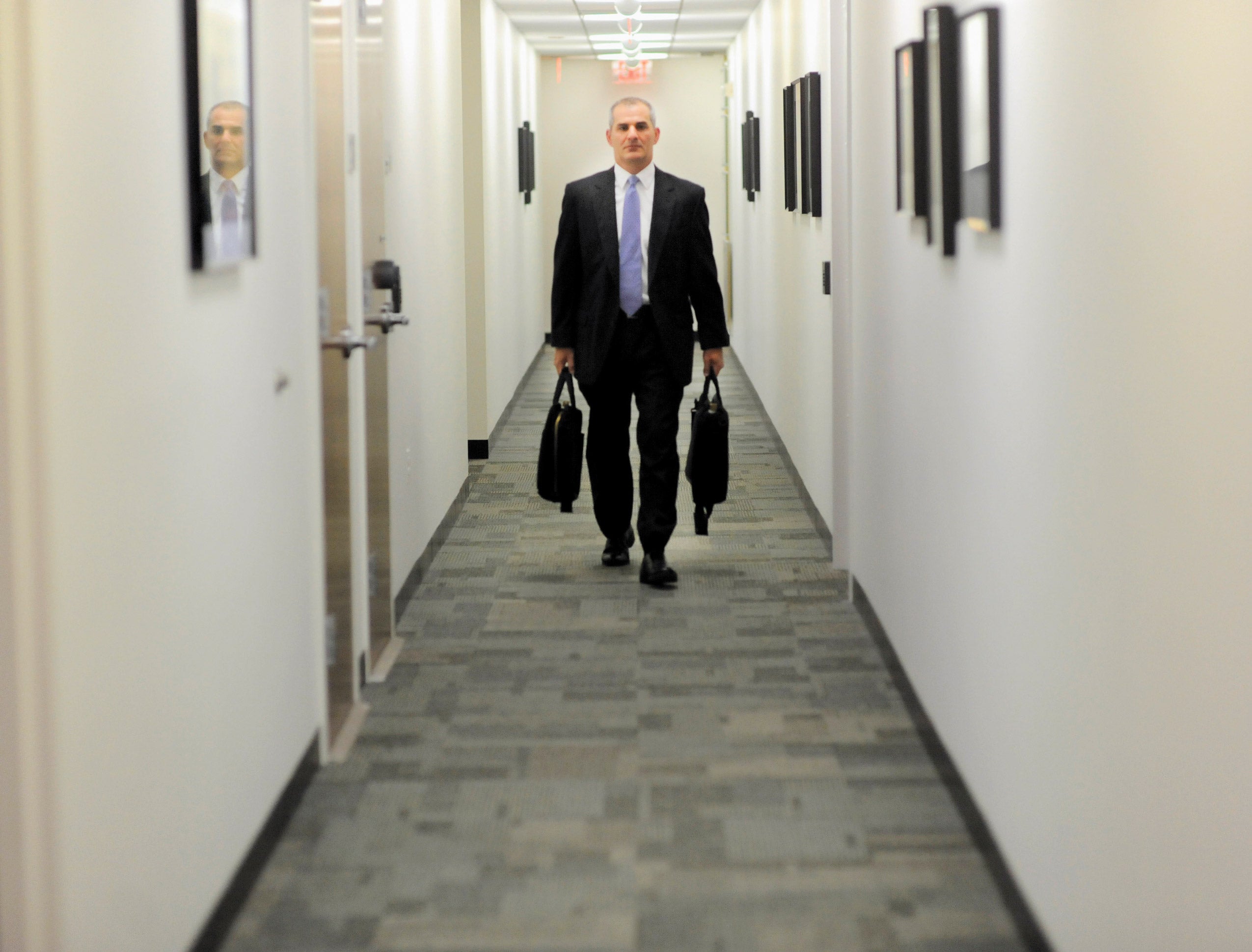Is the U.S. safer now than it was 20 years ago? That depends on the threat, says Michael Leiter ’00, director of the National Counterterrorism Center from 2007 to 2011 under the Bush and Obama administrations. “We are massively safer now than we were on 9/11 from a large-scale national security attack. But there are other things we’re clearly not safe from at all.”
As a former top national security official and current adviser to companies in the defense, intelligence, and technology sectors, Leiter has spent his life assessing threats. The son of a Holocaust survivor, in college he worked for the Department of Justice’s Office of Special Investigations, where he helped track down Nazi war criminals. Certain that he would never find a more exciting job in law, he walked out of his LSAT prep course and decided to join the Navy instead.
Leiter was a naval flight officer for six years before law school finally tempted him. When he arrived at Harvard Law School in 1997, national security drew little attention. The school had no classes, student groups or academic journals on the subject.
That all changed after Sept. 11, 2001. After serving as president of the Harvard Law Review, Leiter clerked for Justice Stephen Breyer ’64 on the U.S. Supreme Court, which is where he was on 9/11. Suddenly, the disparate parts of Leiter’s background—from pursuing international war criminals to serving in the military in the Middle East to immersing himself in constitutional law as a clerk—came together as the perfect preparation for the post-9/11 war on terror.
After two years as an assistant U.S. attorney, Leiter moved on to a series of national security roles in the federal government. There he tackled issues at the crossroads of national security and constitutional law, from warrantless wiretapping to interrogation methods to testing the limits of the Patriot Act.
In 2007, when Leiter became the director of the NCTC, the new agency was intended to coordinate all counterintelligence information, a response to post-9/11 criticisms that the federal government had failed to piece together information in its possession that could have been used to prevent the attacks. But processing such a huge volume of data brought its own challenges. Leiter describes waking each morning to between 6,000 and 10,000 pieces of new intelligence concerning hundreds of specific threats to the U.S. and its interests. The work required a deep focus on the most pertinent threats and a keen ability to shut out distractions.
“We are massively safer now than we were on 9/11 from a large-scale national security attack. But there are other things we’re clearly not safe from at all.”
He recalls testing that ability on the weekend of April 30, 2011. He celebrated his wedding only to turn around the next day and spend 14 hours in the Situation Room while he waited tensely for a team of Navy SEALs to capture or kill Osama bin Laden. “Both events, in completely different ways, were unbelievably emotionally intense experiences,” Leiter says. “There was no room in my brain or psyche to have anything else enter in.”
Eight years later, counterterrorism and national security measures look starkly different. The hunt for terrorist hijackers and bombers has largely been replaced by a more nebulous war. Today’s threats include mass shootings, cyberattacks, election interference and data privacy compromises.
When it comes to terrorists, the federal government is “very good at finding the people who are planning these attacks and intervening,” Leiter says.
But protecting data and information privacy is a more amorphous goal. “I understand if someone is trying to shoot me what the harm is,” Leiter says. “But what exactly is the harm if I’m worried about losing some percentage of privacy in my information?”
With increasingly digitized lives, Americans are vulnerable in new ways that the federal government alone cannot address, says Leiter. Every sector of the economy, from the automobile industry to real estate to pharmaceuticals, now has a stake in cybersecurity. That means the private sector must share responsibility for national security in unprecedented ways.
Which might be why, in 2017, Leiter became a private sector attorney for the first time. A partner at Skadden, Arps, Slate, Meagher & Flom, he focuses on legal issues at the intersection of national security and technology. He has his work cut out for him.
